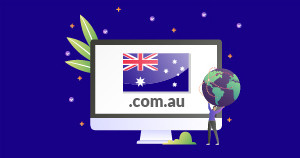Global Marketing News – 20th July 2016
Online-only retailers in Australia turn to physical shops
An increasing number of online-only retailers in Australia are opening physical shops, according to a Commonwealth Bank Retail Insights Report.
The report says that just under 20% of them are planning to establish high-street stores within the next 12 months, as a way of extending market reach.
The Commonwealth Bank’s national manager of retail, Jerry Macey, has said that both online and physical businesses are looking towards omni-channel retailing.
Macey also pointed out that “we have seen large online retailers such as Amazon unveil physical stores in the US”, whilst he said he expects this trend to “strengthen over the year ahead”.
Meanwhile in the UK, research conducted by Verdict and British Land has revealed that 89% of all ecommerce sales ‘touched’ a physical store, an amount that equated to £278 billion.
Ben Dimson, Head of Retail Business Development for British Land, has said that he expects to see “continued demand for physical stores from a variety of operators”, adding that online-only stores were looking into brick-and-mortar shops by “taking pop-up space or temporary units”.
Dimson also said that this seemingly global trend was helping businesses generate online sales through the “halo effect”, and by “strengthening customer relationships”.
Chatbots are growing in popularity
Chatbots are growing in popularity, driven predominantly by better AI and younger users born since the mid 1990s, also known as Generation Z.
Currently, the top four mobile messaging apps have more registered users and higher retention rates than the top four social networks.
With around 11,000 bots available on the Facebook Messenger service, and 6,000 new bots unveiled on Kik in June of this year alone, Generation Z are early adopters of this simpler and more appealing messaging channel offered by bots.
Around 1.4 billion users a month spend on average 23 minutes on a messaging platform, meaning that businesses funding bot development are likely to ensure it is a large part of the next stage of chat innovation.
Meanwhile, consumers are no longer downloading multiple messaging services, and research shows that 88% of users are spending their time on their device using only five apps.
This means developers need no longer develop new services and have new apps approved, but can instead maintain and update existing chat apps with new code and innovation, opening a path for evolving chatbots.
Internet and smartphone penetration rising in Indonesia
Research by eMarketer has shown that internet and smartphone penetration is on the rise in Indonesia, and is expected to maintain strong growth in the future.
As an emerging market, high-quality devices like smartphones and tablets are becoming increasingly more affordable.
The study has shown that whilst smartphone usage in the country last year stood at 55 million, it is expected to rise sharply to 92 million by 2019.
Meanwhile, around a fifth of Indonesia’s districts currently do not have internet access.
However, this number is expected to halve in the next three years, as investment is put into around 22,000 kilometres of broadband network; the Palapa Ring project.
This plan is expected to vastly improve connectivity for the 150 million Indonesians who currently are not online.
As a result, the increase in earnings for the e-commerce market in the country, is expected to rise from 10 million Indonesian Rupiah, to 20 million in just three years.
Naver demands Google pays tax to access map data
And finally, Naver chairman Lee Hae-jin has said that Google must pay tax in South Korea if it wishes to “utilize [South] Korean map data”.
Lee also said that South Korean companies abided by law and paid tax, so Google should have to as well.
Comparing the American search company to brands YouTube and Apple, he added that they do not disclose their earnings in the country, and so was “unfair for them not to pay tax in [South] Korea.”
He also pointed to Google’s demands that South Korea give the company a detailed map of the country, saying that it was “unfair”.
These comments come at the same time as Google CEO Sundar Pichai said that the company would not pay more tax in Europe, where it faces controversy regarding alleged tax owed.
Webcertain’s global marketing news bulletins are daily 5-minute videos, providing marketers with the latest international digital marketing news in an easy-to-digest format.
Podcast: Play in new window | Download
Gemma Houghton
Latest posts by Gemma Houghton (see all)
- Watch the recording: How to identify and seize growth opportunities in international markets - April 20, 2022
- International marketing recruitment: How to drive global growth amid The Great Resignation - February 23, 2022
- 5 trends to include in your 2022 international digital marketing strategy - December 21, 2021





